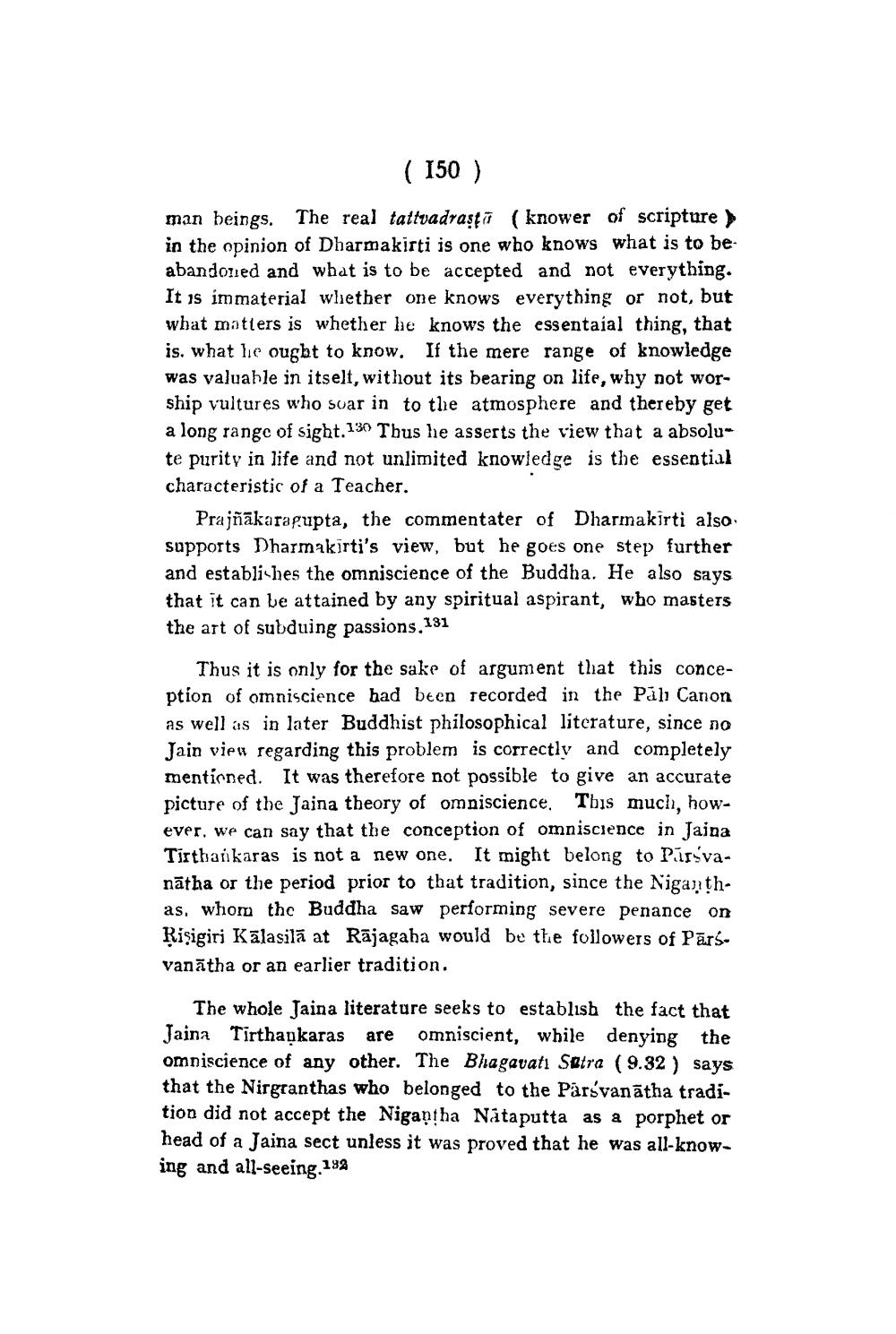________________
( 150 )
man beings. The real tattvadrastā (knower of scripture in the opinion of Dharmakirti is one who knows what is to be abandoned and what is to be accepted and not everything. It is immaterial whether one knows everything or not, but what matters is whether he knows the essentaial thing, that is. what he ought to know. If the mere range of knowledge was valuable in itselt, without its bearing on life, why not worship vultures who soar in to the atmosphere and thereby get a long range of sight.130 Thus he asserts the view that a absolute purity in life and not unlimited knowledge is the essential characteristic of a Teacher.
Prajñākaragupta, the commentater of Dharmakirti also supports Dharmakirti's view, but he goes one step further and establishes the omniscience of the Buddha. He also says that it can be attained by any spiritual aspirant, who masters the art of subduing passions.131
Thus it is only for the sake of argument that this conception of omniscience had been recorded in the Pali Canon as well as in later Buddhist philosophical literature, since no Jain vieu regarding this problem is correctly and completely mentirned. It was therefore not possible to give an accurate picture of the Jaina theory of omniscience. This much, however, we can say that the conception of omniscience in Jaina Tirtharkaras is not a new one. It might belong to Pissvanātha or the period prior to that tradition, since the Niganthas, whom the Buddha saw performing severe penance on Risigiri Kālasilā at Rājagaha would be the followers of Pārs. vanātha or an earlier tradition.
The whole Jaina literature seeks to establish the fact that Jaina Tirthankaras are omniscient, while denying the omniscience of any other. The Bhagavatı Setra (9.32 ) says that the Nirgranthas who belonged to the Parsvanātha tradition did not accept the Nigantha Näta putta as a porphet or head of a Jaina sect unless it was proved that he was all-knowing and all-seeing 192




